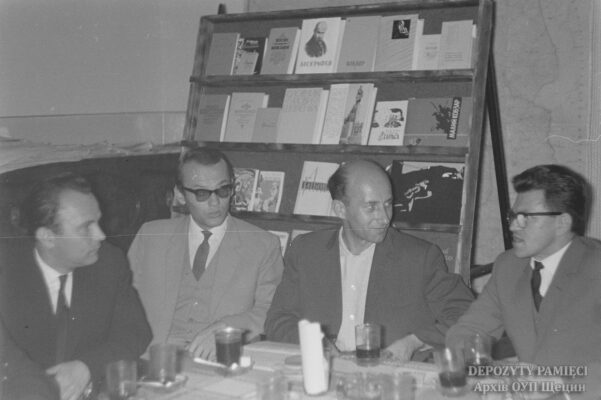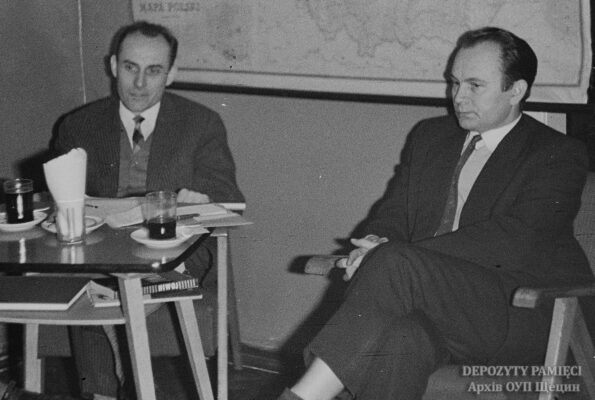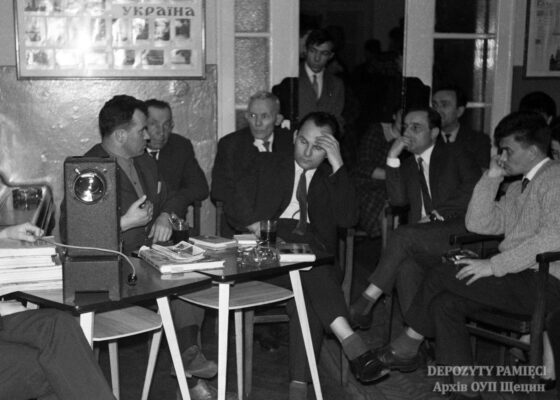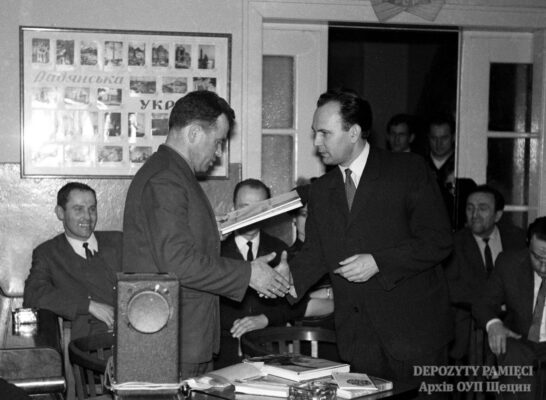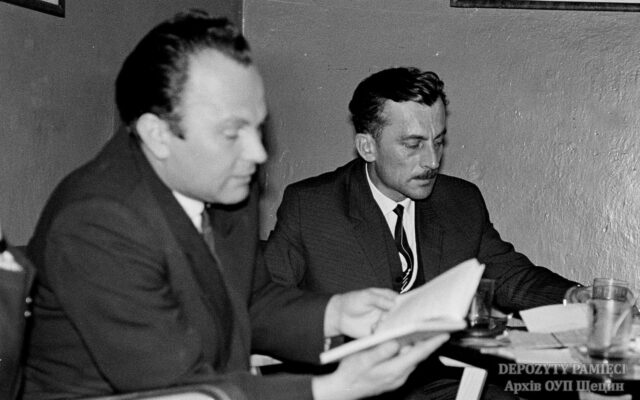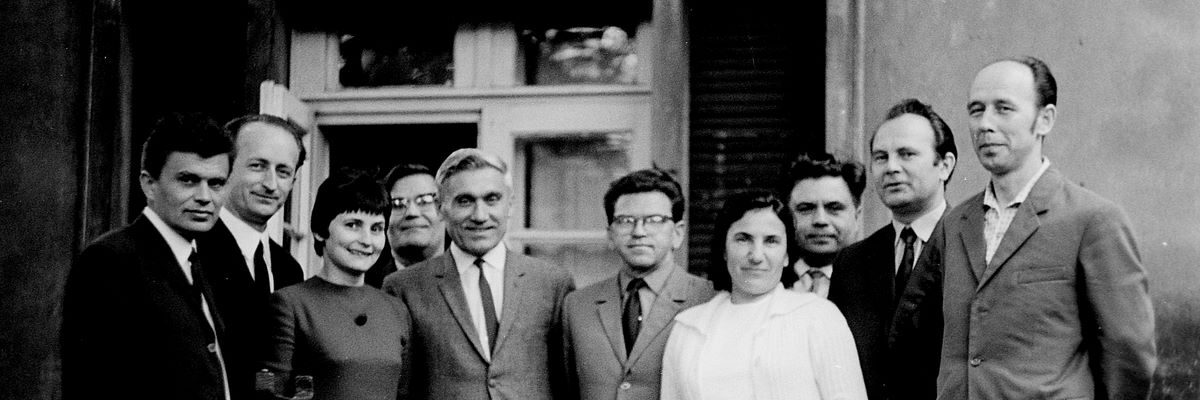One of the main organizers of Ukrainian social and cultural life in Poland after WWII; writer, publicist and columnist; a person repressed by the authorities of People’s Poland.
Myrosław Truchan was born on May 27, 1925 in the town of Miory (Braslaw county, now the Republic of Belarus). His mother, Olena, died two years after giving birth to her son (1927). Father – Hryhorij, in the years 1918-1919 he was a soldier of the Ukrainian Galician Army, after the war he worked as a teacher. In the first half of the 1920s, the Polish education authorities transferred him to work in what was then the Vilnius Province. After the death of his first wife, Hryhorij Truchan remarried.His second wife was Ludwika Surma, who came from a Polish-Ukrainian-German family. The origin of Ludwika Surma was to play a very important role in the history of the Truchan family in the future. Myrosław Truchan began his education in schools in the Vilnius Province of the Second Polish Republic, away from Ukrainian communities. Among others, he studied at the gymnasium in Vilnius. Myrosław’s father, however, tried to keep his son in touch with his peers-countrymen, sending him to various summer camps, including Ukrainian scout camps (Płast).It is worth recalling that this organization was considered illegal in Poland from the early 1930s.
On the day of the outbreak of the German-Polish war, on September 1, 1939, the Polish authorities interned Hryhorij Truchan and, under escort, sent him to the camp in Bereza Kartuska. Released from the camp, Hryhorij Truchan returned to his family. Then, in 1940, thanks to his wife’s origin, he left with her and his son for the town of Kęty, which the Germans incorporated into the Reich in 1939.Myrosław Truchan continued his education in Rybnik, but already in 1942 he was first drafted into the militarized Baudienst units and then into the Wehrmacht. After military training, he was sent to the Eastern Front. In July 1943, Myrosław Truchan was caught by Soviet soldiers and sent to a POW camp in Tambov (Russia).Then he was sent with other prisoners to the Caucasus. He was released from captivity after the end of the war in October 1945. He came to Poland, formally as a repatriate. Initially, he was in Poznań, then in Kęty, and finally in Łukowe near Lesko. Here, too, he found himself with his father.
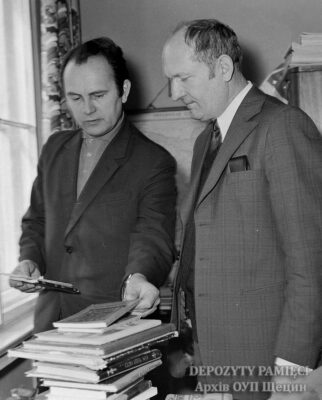
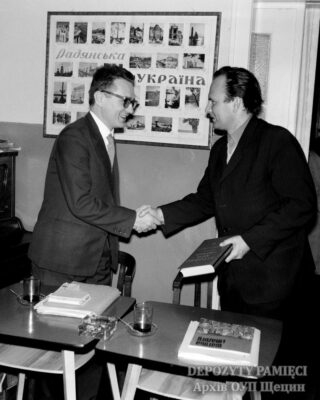
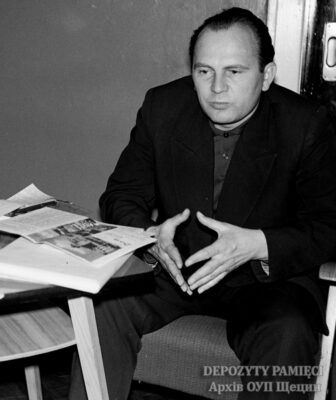

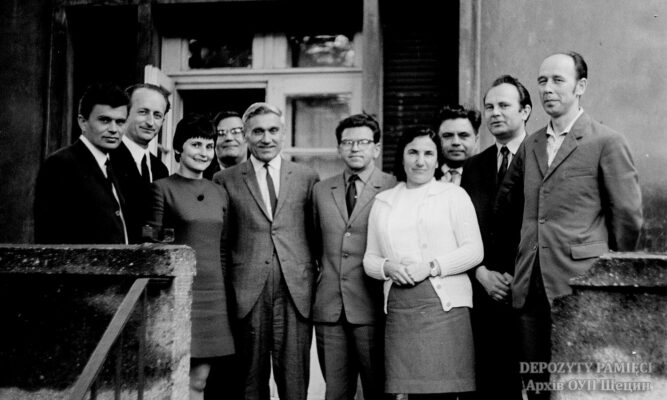
In the spring of 1947, even before the beginning of Operation Vistula, Myrosław Truchan and his father left the Bieszczady Mountains. First, they stayed in Nowa Ruda in Lower Silesia, then they went to Western Pomerania Hryhorij Truchan takes up the post of director of the Pedagogical High School in Kamień Pomorski, and Myrosław starts studies at the Higher School of Economics in Szczecin.After graduation, Myrosław Truchan took a job as an accountant-auditor in the company "Lasy Państwowe". His wife was Zofia née Bieszczady.
Myrosław Truchan was one of the main organizers of Ukrainian social and cultural life in Poland after World War II. among others numerous initiatives related to the integration of the student community were associated with his name.He was also one of the leading activists of the Ukrainian Social and Cultural Society (UTSK), established in 1956. He was, among others, a member of the Provincial Board of the USSK in Szczecin (in the second half of the 1960s). He was one of the initiators of cyclical meetings at the seat of the UTSK in Szczecin (the so-called literary Fridays, including those with the participation of writers from Ukraine, including Lina Kostenko), and Ukrainian broadcasts on the waves of the Polish Radio in Szczecin. For several years (with breaks) he published his columns in the magazine "Nasze Słowa" (under the pseudonyms: Jurko Kucheriawyj and Jurko Kryłatyj), and "Ukrainian Calendar". He conducted extensive correspondence with activists and creators of Ukrainian culture in Poland. Truchan’s activities, for obvious reasons, aroused the interest of the security authorities of the communist state (Security Service – SB). He became the "subject" of the SB’s investigation as part of the case code-named "Company", the formal goal of which was, among other things, to establishing the so-called nationalist circles from the West with Ukrainian activists in Poland.In 1963, Myrosław Truchan was arrested and then sentenced to imprisonment in a show trial. In total, he spent 15 months in prison.After being released, he was still under the surveillance of the security authorities of the People’s Republic of Poland. In 1976 he left Poland and settled first in Great Britain and then in the Federal Republic of Germany, in Munich.Here, at the Ukrainian Free University, he defended his doctoral thesis «Ukrainians in Poland after World War II (1944–1984)», which was then published.His creative legacy also includes books «Negative stereotype of the Ukrainian in Polish post-war literature» (published in the 1990s in Ukraine),the posthumously published volume of memoirs"Like Yesterday" (Spolom, Lviv 2012), a collection of essays ("Columns", Spolom, Lviv, 2013) and the novel "Upstream. The story in two volumes" (Kamenyar, 2014).
Myrosław Truchan died on April 9, 2011 in Munich.
